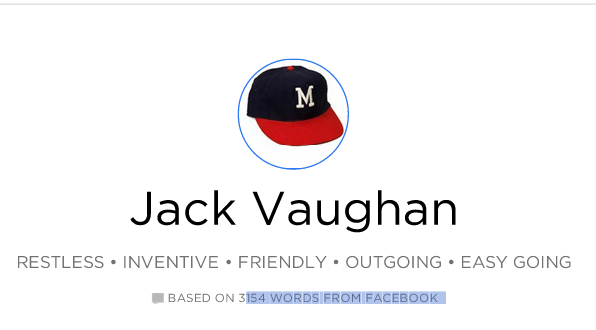 |
Composer Philip Shepard sees links
between data and music.
He scored a film on chess
master-cum-crazy-man Bobbie Fisher. |
The near mystic quality some people attribute to data should be some cause for concern. Something doesn’t usually go from familiar and forgettable to world-changing and magical overnight. What portion of today's data paeans (
"I love data") (
"Data is the new punk") will flower dandelion-like then drift off on wind? It is hard to say.
But a feeling can hold that some of this is good, worthy. I've had a chance to see a few conference keynotes that dabbled more in the art – less in the science - of data. And some ring true. At the recent Enterprise Data World event, there was a session by a data strategist from Marvel comics that made the case for applying graphing database architecture to the 'need' to rationalize different incarnations of different super heroes as data elements. Entertaining, yes -but not an effective poster for data as a new way of being. But another session, one led by composer Philip Sheppard, had more such merit. The Marvel guy seemed to admit that - by noting that he wouldn’t want to follow Sheppard's presentation.
AT EDW14, Philip Shepard discussed information as symphony. Sheppard does film scores - says #Music is #data. @PhilipSheppard #EDW14 He makes a case that data is poetic. It is true, as he point out, you can look a little and see lyrical whiffs in graphical renderings on data on public bicycle use, the slipstream of air pressure readouts for an F1 racer.
But really, the place where his insights into the special nature of data bear the most fruits is the place he is closest to – music. "What is music? He asks. It's loads of things. He answers. It's transformative. It is a form of solace. You can wallow in it and you don’t really know why. Memory is so connected to music. People learn whole caches of text, when there is music attached. Once it probably was the major way of encoding history. Much can be learnt from the way musicians cope with huge amounts of data under duress. The basic music message can change over time, depending, eg., on players' emphasis. Sheppard's words to the data folks assembled: "When you are dealing with things you have to look at them as fluid I think we are starting to look at #data that way."
He has a point. When I was at the symphony once it strikingly dawned on me that this was a message from a human in time. Ludwig. I wrote about it on my art blog (MoonTravellerHerald)
under the persona of Shroud Jr.
Was in the symphony one day – many rainy years ago -- and Beethoven’s message was just crystalline to me. Me, Shroud Jr. Like a telegraph message through the foam of time – Beethoven heard the birds, the guns, he was losing his hearing. He was writing it down. Sending it out. Shroud Jr. was pickin up on it.
Truth be told, I was taken away with Sheppard's music, and can't do his argument justice here! I don’t find much on the web of his that helps directly either. But some links follow. Communication, music – an interesting path always. Now, revise as communication, music, data. – Jack Vaughan
Related
http://philipsheppard.bandcamp.com/album/bobby-fischer-against-the-world
http://philipsheppard.com/philip-sheppard-biography/
http://edw2014.dataversity.net/sessionPop.cfm?confid=79&proposalid=6305
http://philipsheppard.com/



